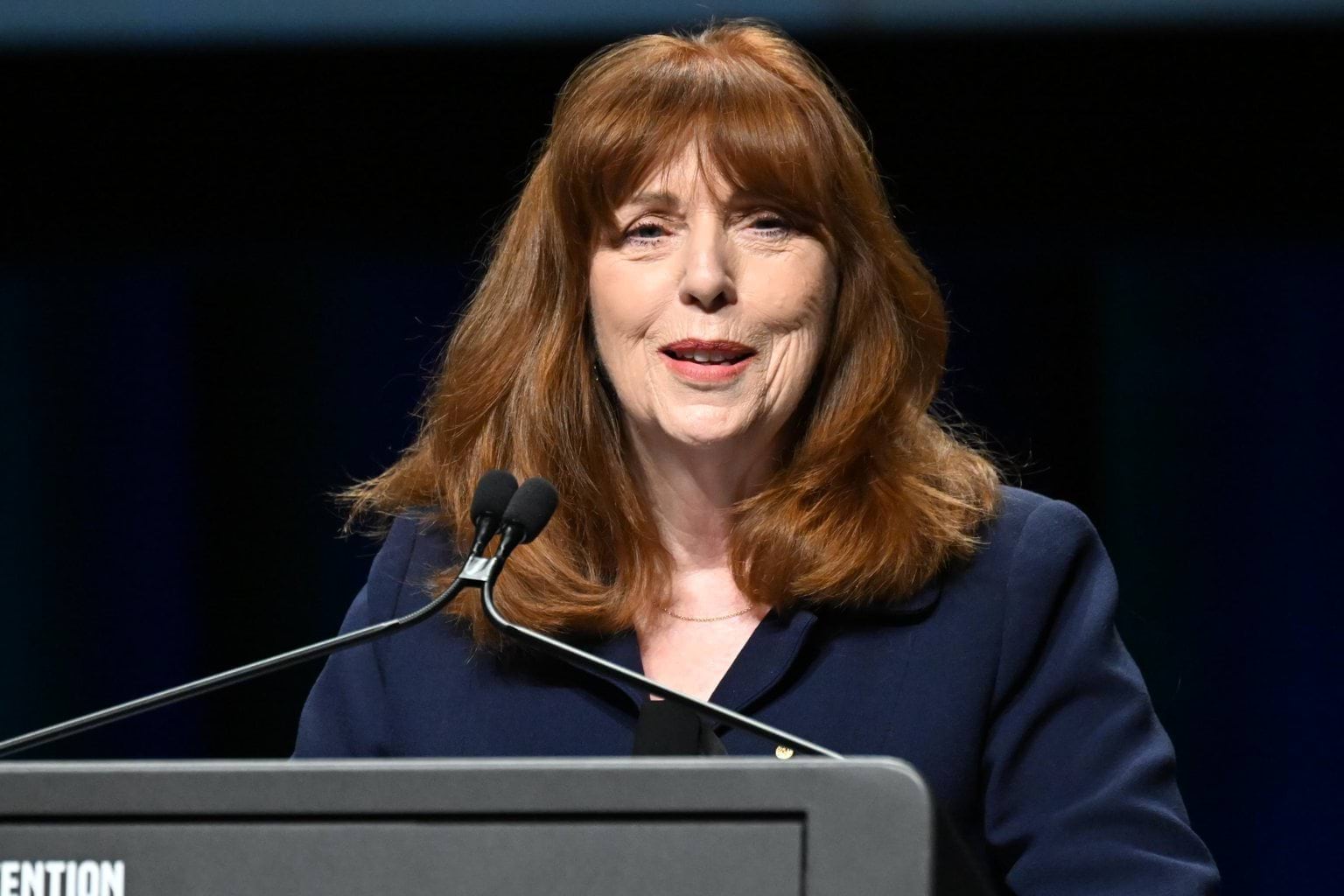- Published:
- Tuesday 2 September 2025 at 11:45 am

Introduction
I begin by acknowledging the Traditional Owners of the lands on which this building stands – the Wurundjeri people – and pay my respects to their Elders, past and present.
I want to thank the organisers of the World Chambers Congress for bringing their 14th forum to Victoria.
And I want to welcome our international guests to Melbourne.
I know you are all busy people. I know you’ve travelled great distances to be here. And I know you’ve already sat through several speeches and panels.
You’ve heard from our Premier, the Honourable Jacinta Allan.
You’ve discussed the economic ramifications of geopolitical disruption.
You’ve had an official opening.
You’ve participated in a plenary session on shared global challenges.
You’ve enjoyed a networking lunch.
And you still have three plenary sessions to go – as well as a reception with the Lord Mayor of Melbourne, Nick Reece.
With that in mind, I won’t plough the field again by telling you what you already know about the changing nature of global trade.
Instead, I want to focus on the theme of this Congress – ‘partnering for prosperity’.
I’m pleased that this Congress is centred around ‘partnering for prosperity’.
Let me, via a brief digression, explain why I’m pleased.
The economist Thomas Schelling was a proponent of game theory – which is, in essence, the mathematical study of strategies.
One of the dangers of strategic planning is the unknown or rogue element – and the risk of mistaking an unfamiliar situation for an improbable situation.
The confusion of the unfamiliar and the improbable, Schelling explains, can lead to real world problems because, and I quote, …
‘There is a tendency in our planning to confuse the unfamiliar with the improbable. The contingency we have not considered seriously looks strange; what looks strange is thought improbable; what is improbable need not be considered seriously.’
My point?
Due to a global convergence of changes in trade, politics, technology and the environment, the improbable can no longer be discounted.
We have entered the realm of the Romantic poet William Blake, where ‘what is now proved was once only imagined’ – if contemplated at all.
These are improbable times – and the improbabilities have only accelerated since Schelling’s death in 2016.
If you don’t believe me, consider the post-2016 ramifications of Covid, Brexit, wars in the Ukraine and Gaza, climate change, and populist politics.
The improbable has become reality – and the age of improbabilities has only just begun.
One of the key challenges of improbable events such as Covid is that, like earthquakes, they are difficult to accurately predict – and therefore almost impossible to plan for.
That is why we must be vigilant.
That is why we must guard against confusion.
And that is why we must have the flexibility of mind and relationships necessary to find opportunities in strange or unfamiliar situations.
All of which brings me back to ‘partnering for prosperity’.
If you have made the time to fly around the world to be with us today, it’s safe to assume you are looking for ways to respond to this brave new world of improbable realities.
And the good news is you are not alone …
... because you have landed in a country that is always open to new people, new ideas and new opportunities.
With that in mind, I want to spend my time with you to present three reasons why you should – if you are looking for new ways to prosper – seek a partnership with the Victorian people.
Place
The first reason why Victorians make great partners is all about place.
Some of our place-related advantages are tangible.
For instance,
Melbourne is regularly ranked as one of the most liveable cities in the world;
We have Australia’s busiest 24-hour, curfew-free airport;
We have Australia’s busiest container port;
We are the home of much of Australia’s $4 trillion pension fund industry – which is constantly scouting for international business investments;
We have two universities ranked in the global top 40 – Melbourne and Monash; and
We have world-class research facilities such as the Australian Synchrotron, as well as the iconic Parkville medical research precinct.
In short, Victoria is a safe, smart, clean place to live and work.
And those advantages multiply when you also consider the benefits of Victoria’s place in the world.
The first benefit is that we sit at the doorstep of the Asia-Pacific.
That’s why China is our biggest trading partner, with our other top partners including the United States, Japan, South Korea, Thailand, and New Zealand.
But, thanks to our 24-hour transport connections, we are also surprisingly close to other parts of the world.
Take Flavorite – a locally-owned agricultural company.
I visited Flavorite in regional Victoria last month and was astounded by the size and scope of its glasshouses – which the company uses to produce world-class vegetables all year round.
And Flavorite’s produce isn’t just consumed within Australia – it’s been exported, fresh, for 20 years.
That brings me to another of our little remarked upon competitive advantages – the geographic size of Victoria.
One of the reasons why companies like Flavorite are able to export fresh produce is that it doesn’t take long to get fruit and vegetables, or meat and fish, to the airport.
In essence, we’re the goldilocks state –
Big enough to be Australia’s largest exporter of food and fibre;
Smart enough to be on the cutting edge of niche research, manufacturing and pharmaceuticals; and
Small enough to reach global markets overnight from regional areas.
Our just-right size gives us the advantages of efficiency and diversity.
By landmass, we are the smallest state on the Australian mainland, but we still have enormous geographic diversity – with Victoria including everything from mountain ranges to volcanic plains to surf beaches to snowfields to rainforests to deserts.
Perhaps, the best way to give you a sense of Victoria’s size is by way of comparison.
If you’re from North America, Victoria’s landmass is the size of Utah.
If you’re from South America, we’re the equivalent of Ecuador.
If you’re from Europe, we’re like Britain.
If you’re from Asia, we’re twice the size of South Korea.
If you’re from Africa, we’re slightly smaller than Uganda.
And, if you’re from the Middle East, we’re three times smaller than Türkiye.
People
The goldilocks analogy also applies when you consider the second reason why Victoria makes an ideal business partner – our people.
Consider the numbers.
Melbourne is the largest and fastest-growing capital city in Australia.
Victoria also has the second-largest population in Australia, with more than 7 million residents.
That means we have more people than the likes of Serbia, Denmark, Singapore, Paraguay, Congo, Norway, Lebanon and Ireland.
And we produce 30 per cent of Australia’s STEM graduates.
In addition, Victoria is a magnet for highly skilled migrants – with almost half of new residents coming from China and India.
The other top nationalities for skilled migration over the last decade are Sri Lanka, the Philippines, Nepal and Pakistan, the United Kingdom, and Vietnam.
As a result, we are one of the most diverse communities in the world – with almost one-in-three Victorians born overseas.
Our citizens come from 300 different cultural backgrounds, speak more than 290 languages and dialects, and follow almost 200 faiths.
That means Victorians don’t just speak the world’s languages, we also understand the many and varied cultures and practices of the world.
This diversity also makes Victoria a place where everyone is welcome, everyone belongs, and – thanks to our commitment to liveability and equity – anyone can succeed.
Our diversity is not new, either. If anything, it’s inherent.
Before colonial settlement, Aboriginal Victorians spoke 30 different languages.
In the 1850s, at the height of the Gold Rush, one-in-four adult males in Victoria were Chinese.
In other words, Victoria is – and always has been – a place of diversity and difference; and that is why we are open to new opportunities and partnerships.
Products
That brings me to the third reason why Victoria is a good business partner: our products.
Victorians know how to deliver the goods – and services.
Our biggest goods exports are food and fibre – followed by pharmaceuticals. And, due to the strength of our universities, our largest service export – by far – is education.
Every year, thousands of international students come to Victoria to study – and many stay.
But there’s more to Victorian industry than food, pharma and education.
Much more.
One of the advantages of my role as Governor – which is the constitutional Head of State – is that I get to see more of Victoria than most people.
And, as I travel around, I am constantly surprised by what I find.
Last month, for example, I toured regional Victoria – and met a wide range of locally owned or operated businesses.
I went to dairy processors … greenhouse food growers … defence manufacturers … life sciences and therapeutic firms … medical researchers … and precast concrete manufacturers.
I always learn something new on my travels.
Take defence manufacturing.
I knew the Bushmaster armoured vehicle was designed and built in the regional Victorian city of Bendigo.
And I knew the Bushmaster was renowned for its ability to safely transport troops.
For instance, the Ukrainian army is using 120 Bushmasters on its frontlines – and giving the vehicle rave reviews.
The company I visited in Benalla – LS Precast – is the largest manufacturer of precast concrete in the southern hemisphere, …
.. producing immense precasts for infrastructure projects like Melbourne’s new road and rail.
The point I am driving at is that – due to the diversity of our country, people and industry – Victoria is well placed to adapt to change, navigate challenges and grasp opportunities during these improbable times.
And – speaking as the representative of an open, multicultural people – we are always looking for new friends.
Conclusion
Let me leave you with this thought.
An eminent Victorian historian, Professor Geoffrey Blainey, once wrote of the tyranny of distance – and how our geographic isolation into the mid-20th century influenced our national economy, society and identity.
I know your flights to Melbourne Airport were long, but the world no longer feels so distant from Australia and Victoria.
There are three reasons that we no longer feel as isolated.
First, there is the prevalence of mass air travel.
Second, there is the ubiquity of mass and social media – as well as other technological changes.
Third, there is the fact that the world has come to us – making us one of the great multicultural societies of the world.
One of the after-effects of Australia’s historic isolation is the strength of our national identity.
Australians in general – and Victorians in particular – are sticklers for fairness – or the fair go.
We believe that opportunities – including the great opportunity of global trade – should be open to all. And we are ready to shake the hand of any person willing to work with us to make that belief a reality.
If you are one of those kinds of people – if you are open to new ideas and opportunities – if you are looking for a partner you can trust – you have come to the right place.
Welcome to Victoria.
Updated

